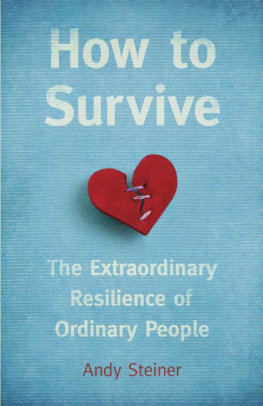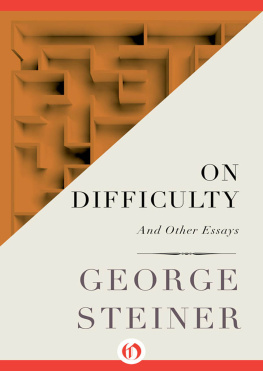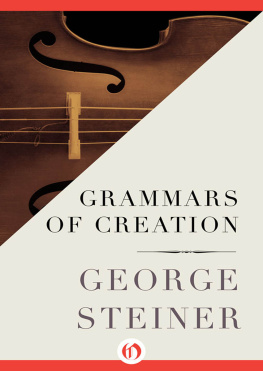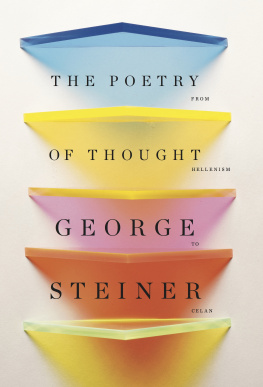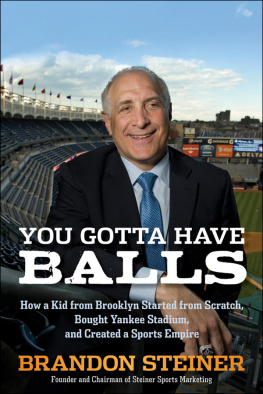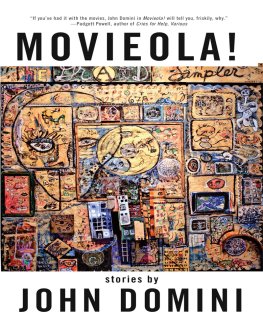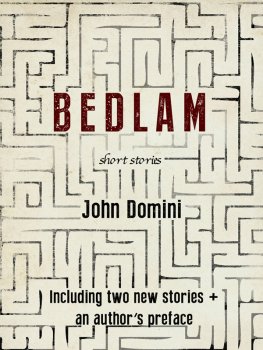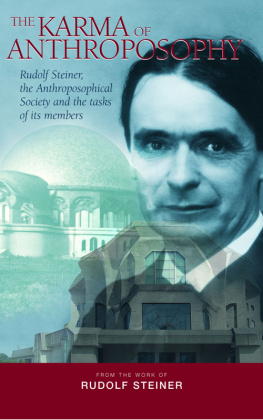Steiner - Anno Domini: three stories of the war
Here you can read online Steiner - Anno Domini: three stories of the war full text of the book (entire story) in english for free. Download pdf and epub, get meaning, cover and reviews about this ebook. City: New York;NY, year: 2012;1986, publisher: The Overlook Press, genre: Detective and thriller. Description of the work, (preface) as well as reviews are available. Best literature library LitArk.com created for fans of good reading and offers a wide selection of genres:
Romance novel
Science fiction
Adventure
Detective
Science
History
Home and family
Prose
Art
Politics
Computer
Non-fiction
Religion
Business
Children
Humor
Choose a favorite category and find really read worthwhile books. Enjoy immersion in the world of imagination, feel the emotions of the characters or learn something new for yourself, make an fascinating discovery.

- Book:Anno Domini: three stories of the war
- Author:
- Publisher:The Overlook Press
- Genre:
- Year:2012;1986
- City:New York;NY
- Rating:4 / 5
- Favourites:Add to favourites
- Your mark:
- 80
- 1
- 2
- 3
- 4
- 5
Anno Domini: three stories of the war: summary, description and annotation
We offer to read an annotation, description, summary or preface (depends on what the author of the book "Anno Domini: three stories of the war" wrote himself). If you haven't found the necessary information about the book — write in the comments, we will try to find it.
Anno Domini: three stories of the war — read online for free the complete book (whole text) full work
Below is the text of the book, divided by pages. System saving the place of the last page read, allows you to conveniently read the book "Anno Domini: three stories of the war" online for free, without having to search again every time where you left off. Put a bookmark, and you can go to the page where you finished reading at any time.
Font size:
Interval:
Bookmark:
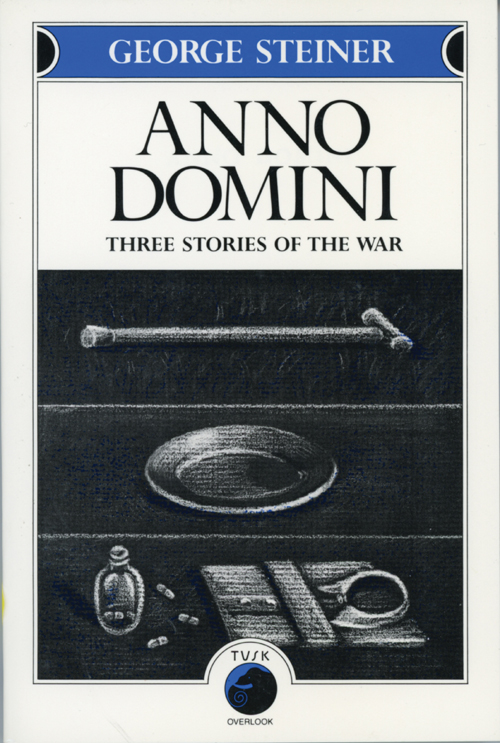
First published by Tusk/Overlook in 1986 by
The Overlook Press
141 Wooster Street
New York, NY 10012
www.overlookpress.com
For bulk and special sales contact sales@overlookny.com
Copyright 1964 by George Steiner
All Rights Reserved. No part of this publication may be reproduced or
transmitted in any form or by any means, electronic or mechanical, including
photocopy, recording, or any information storage and retrieval system now
known or to be invented without permission in writing from the publisher,
except by a reviewer who wishes to quote brief passages in connection with a
review written for inclusion in a magazine, newspaper, or broadcast.
ISBN 978-1-46830-354-4
for
S TORM J AMESON

H e paused by the edge of the road until the truck had curved out of sight and the rasp of the motor had died in the cold salt air.
Then he shifted his rubber-tipped cane to his right hand and stooped down with the left to pick up his suitcase, torn at the hinges and lashed with string.
He advanced in spasms down the gravelled side road to the village. His right leg was dead to the hip and swung on the socket of his straining body in a slow arc. The foot, shod in a blunt shoe and raised on a bulky leather heel, slid gratingly with each step. Whereupon the man would again thrust cane and body forward and draw the leg after him.
The twist of effort had hunched his neck and shoulders as if he wore armour, and at every lunge sweat shone at the edge of his fine, reddish hair. Pain and the constant observance of precarious footing fogged his eyes to an uncertain grey. But when he gathered breath, setting his suitcase on the ground and stilting on his cane like a long-legged heron, his eyes resumed their natural colour, a deep harsh blue. The port of his head, with its fine-drawn mouth and delicate bone structure, mocked the gnarled contortion of his gait. The man was handsome in a worn, arresting way.
Ordinarily, trucks did not stop in the highroad but churned by between the dunes and the cliffline, either inland to Rouen, or farther along the coast to Le Havre. Yvebecques lay off the road, on the escarpment of the cliffs and along a half-moon of stone beach. High yellow buses stopped on their way from Honfleur, turning into the market-place. They unloaded under the wide-flung eaves of the Norman market hall. Beyond its pillared arcade ran a street, narrow and high-gabled, and at the end of it the beach, merging into the wavering light of the sea.
On the market-place stood a three-spouted brass fountain. It bore a scroll filled with names and garlanded with ceremonious laurel. Each spout curved like a desolate gargoyle over a date, heavily incised: 1870, 1914, 1939, pro domo.
Hearing the truck stop and shift gears, the men who stood among the market stalls or by the fountain looked up. A coldness and stiffness came over their easy stance. The fishmonger, who was hosing down his marbled stall, let the water race unchecked across his boots.
The traveller was now very near. Once again he rested his suitcase and straightened his back, letting the strain ebb from his shoulders. At the verge of the market-place, where the gravel turns to cobblestones, he paused and looked about. His mouth softened into a smile. He had not heard the brusque silence and made for the fountain. He hastened his step by sheer bent of will.
He brought his face under the live spout. The chill, rusty water spilled over his mouth and throat. Then he pushed himself upwards, pivoting adroitly on his good leg. He limped towards the red-and-yellow awning of the caf. But a mass of long, unmoving shadows fell across his way. Three of the men wore the heavy smocks of fishermen; one was round, close-cropped and in a dark suit. The fifth was scarcely more than a boy. He hovered near the edge of the group and chewed his wet lip.
The stranger looked at them with a grave, hesitant courtesy, as if he had known they would be there to bar his way but had hoped for some twist of grace. The round dark one surged forward. He set his lacquered shoe against the mans cane and thrust his face close. He spoke low, but such was the stillness of the square that his words carried, distinct and raging: No. No. Not here. Get out. We dont want you back. Any of you. Now get out.
And the boy cried, No, in a thin, angry whine.
The traveller bent a little to one side, as in a sudden rouse of wind. Close by a voice flat with rage said again: Get out. We dont want any part of you. Lucky for you youre a cripple. Not enough meat for a man on your carcass.
He squinted against the high sun and remembered his bearings. He veered from the bristling shadows and started towards the street which led from the market square to the apple orchards on the western terrace of the cliffs. But even before he had entered the dark of the Rue de la Poissonire, the boy had leaped past. He whirled, grinning with spite: I know where you are going. I will tell them. Theyll stone you alive. He spurted on and turned once more: Why dont you catch me, cripple?
Tight-buttoned, the notary peered after the stranger. Then he spat between his lacquered toes and whistled. A large dog rose from under the meat stalls and ambled over. A leathery cur backed mournfully from a pile of fishgut oozing on the warm stones. Other dogs came off their haunches. The notary scratched his mongrel behind the ears and hissed at it, pointing towards the limping man. Then he flicked the dog across its snout with a lash of the wrist. The animal sprang away snarling. Monsieur Lurt hissed again and the dog understood. He fanged the fleas from his raw neck and gave a queer yelp, cruel and lost. A retriever, who had been drowsing under the billiard table, tore out of the caf. Now other men were flailing and whistling at the dogs and pointing to the Rue de la Poissonire. The pack milled at the fountain snapping at each other, then hurtled towards the narrow street. In the van, Lurts mongrel let out a full-throated cry.
He heard them coming in a loud rush but they were at his heels before he could turn. They flew at him like crazed shadows, slobbering and snapping the air with woken fury. The man swayed off balance as he swung his cane at the bellowing pack. He was able to stem his legs against a wall but the mongrel sprang at him, its eyes flaring with vacant malignity. The rancid scent of the dog enveloped him. He flung the animal from his face but felt a hot scratch raking his shoulder.
Beyond the reek and clamour of the charging dogs, like distant streamers on the wind, the lame man heard laughter from the market-place.
The animals were wearying of their sport. They stood off, baring their teeth. Only the retriever was still at him, circling and darting in, its head low. It evaded the mans cane with jagged leaps. Suddenly the bitch hurled herself at the strangers inert leg. Her teeth locked on the leather heel. The man went down against the side of the house, clawing the air for support. The dog inched back, its tongue red over its bruised mouth. The cane snapped down on it with a single, murderous stroke. The animal subsided into a moaning heap; somewhere a bone had cracked and now its eyes spun.
The suitcase had fallen on the cobblestones. One of the hinges sprung and a small parcel tumbled out. It had shattered against the sharp rim of the pavement. Slivers of blue and ice-white china lay dispersed in the gutter. In the murky street they gathered points of light. The man dragged himself over and picked up what was left of the Meissen figurine. Only the base, with its frieze of pale cornflowers, and the slim, silk-hosed legs of the shepherd dancer were intact. Bereft of the arching body and dreaming visage, these legs, in their plum breeches and black pumps, retained the motion of the dance. The head had smashed into myriad pieces; only the hat could be made out, lying near the middle of the street, three-cornered and with a flash of plume.
Font size:
Interval:
Bookmark:
Similar books «Anno Domini: three stories of the war»
Look at similar books to Anno Domini: three stories of the war. We have selected literature similar in name and meaning in the hope of providing readers with more options to find new, interesting, not yet read works.
Discussion, reviews of the book Anno Domini: three stories of the war and just readers' own opinions. Leave your comments, write what you think about the work, its meaning or the main characters. Specify what exactly you liked and what you didn't like, and why you think so.

